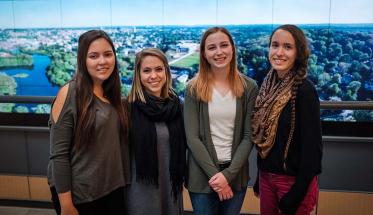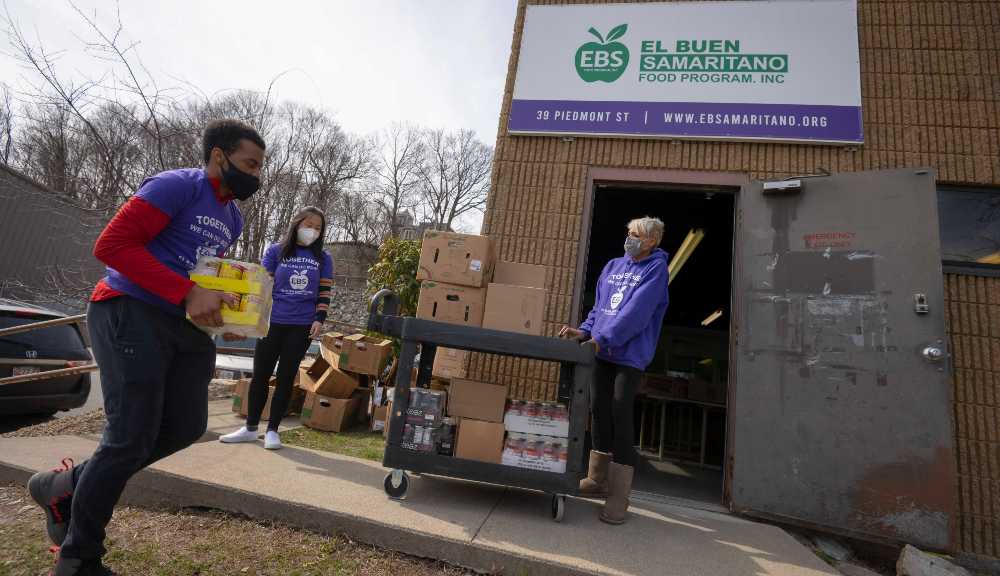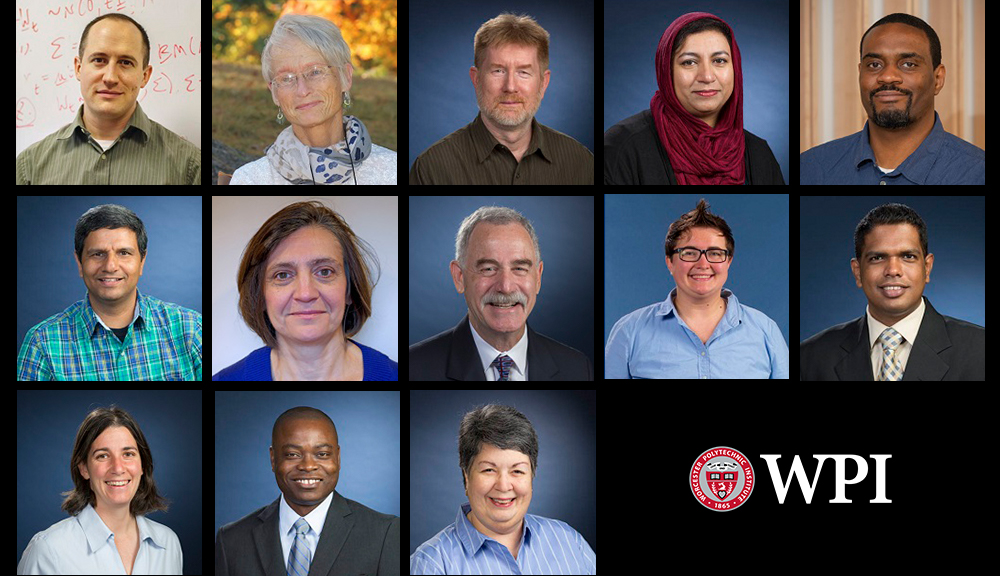Last year, WPI was named a top-producing institution of STEM students for the Benjamin A. Gilman International Scholarship, which has provided financial support for over 28,000 American undergraduate students to study or intern abroad since 2001. This year the university was recognized again for the same honor, giving even more students the opportunity to complete their Interactive Qualifying Project (IQP) or Major Qualifying Project (MQP) in another country.
Nine students were recipients of the prestigious scholarship for the 2017–18 academic year; four of them describe where they traveled and how their project work impacted them personally and professionally.
Sara Cardona
Sara’s desire to complete her IQP in Costa Rica stemmed from her interest in projects related to conservation and the environment. She and her teammates conducted interviews with fishermen and shop owners and analyzed data to help create a localized economy for the town of Monteverde, with the goal of boosting the local economy while also minimizing carbon emissions.
Not only did the experience help her meet new people and travel to new locations, she was able to push herself outside of her comfort zone, improve her communication and interpersonal skills, and, she said, "it allowed me to make a positive impact on a community, something I found very valuable and fulfilling.”
Sara’s post graduation plans include attending the University of Notre Dame to earn her MS in civil engineering while researching the structure of bridges.
Maria Daigle
In her words, Maria “was looking for a project with the opportunity to truly make an impact—both on myself and on the local community.” She found that and more while completing her MQP in Paraguay, the only project center with a language requirement.
While working with the Fundación Paraguaya at Escuela Agricola, a school that teaches students skills they need to overcome poverty, she assessed and analyzed students’ social, emotional, and cognitive skills to predict their future achievements. Her work will be used to track student progress; she has presented it at the International Convention of Psychological Science in Paris and translated it into Spanish, allowing the school to continue her work.
The trip also prompted her to pursue a Spanish minor and travel to Israel for her second MQP. She sees travel playing a big role in her future; “It’s given me a greater appreciation for diverse cultures and perspectives," she says, "in addition to the technical skills needed to be a successful scientist and engineer.”
After graduation, Maria will be pursuing a PhD in biomedical engineering with the goal of developing brain-computer interfaces for healthcare applications.
Mary Davis
A project on Ecuador back in high school first sparked Mary’s interest in visiting the country one day, and her IQP was the chance to do just that, giving her an experience she’d never forget.
She and her team worked with El Museo de Las Conceptas to develop a community outreach program. They created a children’s workbook with word searches, coloring pages, and other activities, all related to exhibits in the museum. Their accompanying chaperones guide was designed to help teachers and parents make a museum visit as fun and educational as possible.
Her experience in Ecuador introduced her to a new culture, and also improved her collaboration skills and ability to work through setbacks or conflicts. “Every project I’ve worked on has required me to think outside the box or outside my comfort zone, which has helped me become more creative.”
Mary is graduating this year, but that doesn’t mean her time at WPI is coming to an end—she’ll be returning in the fall to attend graduate school for a master’s in biomedical engineering.
Olivia Jones
Olivia saw completing her IQP at the Paraguay Project Center as an opportunity in more ways than one: in addition to the humanitarian and environmental project focuses, it gave her a chance to challenge herself and improve her Spanish.
Her team was one of the first WPI student groups to work with the Poverty Stoplight initiative, created by social entrepreneur-in-residence Martin Burt. They immersed themselves in Paraguayan life, living at an agricultural school during the week. Together, they helped families improve their cooking conditions, going from open flames to elevated stoves, as safely and financially responsible as possible.
WPI’s emphasis on project-based learning is what initially drew her to WPI, and she says, “I thoroughly believe this method of teaching has prepared me for life after graduation … nothing is more fulfilling than the feeling that I made a valuable contribution to something I care about, and I hope to do the same in my career.”
Olivia will be earning her MS degree in mechanical engineering as part of WPI’s five-year BS/MS program; in the meantime, she’ll be working as a project engineer intern in organic food manufacturing.
- By Allison Racicot




